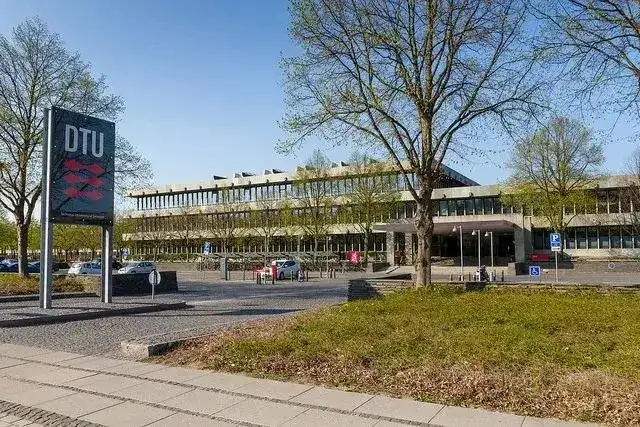
丹麦技术大学博士后职位—微塑料和纳米塑料对土壤影响的评估
Technical University of Denmark
Do you want to build a career in developing science-based solutions for addressing society’s grand environmental sustainability challenges? Do you want to work with international front-runners in agronomy, soil sciences, environmental chemistry, and sustainability assessment from academia, industry and public institutions? Do you want to innovate in the field of assessing global plastics pollution? Then, this postdoctoral project is the right fit for you!
You will develop methods and guidance for linking impacts from micro- and nanoplastics on soil quality to damage on ecosystem services for implementation into the life cycle assessment (LCA) framework, and provide recommendations for a sustainable use of plastics in Europe.
In DTU Sustain’s section for Quantitative Sustainability Assessment (QSA), you will join world leaders in life cycle assessment, absolute environmental sustainability assessment and impact characterization. QSA offers an excellent research environment with around 30 international staff, postdocs, and PhD students.
Your project is expected to spearhead the farm-to-regional level evaluation of micro- and nanoplastics impacts on soil health, as part of the Horizon 2020 MINAGRIS project aiming at a sustainable agricultural transition with focus on evaluating and minimizing plastics impacts on soil ecosystem services and overall sustainability. It is foreseen that you will participate in MINAGRIS project activities and network, and collaborate with scientist from MINAGRIS partner institutions from academia, the private and the public sector.
Responsibilities and qualifications
Your overall focus will be to strengthen the department’s competences within plastics damage assessment and ecosystem services modeling, geospatial modeling, and farm-to-country level data analysis. Methods developed in your postdoctoral project will help evaluating micro- and nanoplastics applied in European agriculture, through the modeling of impact-to-damage pathways for human and environmental health.
Your primary tasks will be:
•Develop a framework for linking indicators for relating micro- and nanoplastics pollution with effects on soil chemistry, physics and biodiversity to damage on soil ecosystem services
•Develop a decision support tool (DST) for farmers and farm associated stakeholders to evaluate farm-level micro- and nanoplastics impacts on productivity, ecosystem services and sustainability performance
•Provide impact results for various agricultural plastic use practices form farm-to-country level
•Participate in teaching activities including supervision of MSc student projects, and co-supervision of PhD student projects
You will become part of an energetic and dynamic research environment.
You should have a PhD degree in environmental engineering, mathematical physics, ecological or biological sciences, or a similar degree. You should have expertise in the fields of soil sciences and/or ecosystem services assessment. Expertise in life cycle assessment (LCA) and plastics pollution assessment is welcome.
Special expertise in analysing impacts and damages of chemicals or plastics in the environment, advanced skills in ArcGIS and Matlab or R are a clear advantage. A strong motivation for analytical research and excellent communication skills in English are essential for a successful application.
As a formal qualification, you must hold a PhD degree (or equivalent).
We offer
DTU is a leading technical university globally recognized for the excellence of its research, education, innovation and scientific advice. We offer a rewarding and challenging job in an international environment. We strive for academic excellence in an environment characterized by collegial respect and academic freedom tempered by responsibility.
Salary and terms of employment
The appointment will be based on the collective agreement with the Danish Confederation of Professional Associations. The allowance will be agreed upon with the relevant union.
The period of employment is two years. Expected starting date is 1st October 2022. The position is a full-time position.
You can read more about career paths at DTU here.
Further information
Further information may be obtained from Professor Peter Fantke, email: pefan@dtu.dk
You can read more about the DTU Sustain department at https://sustain.dtu.dk/en
If you are applying from abroad, you may find useful information on working in Denmark and at DTU at DTU – Moving to Denmark.
Application procedure
Your complete online application must be submitted no later than 1 September 2022 (Danish time). Apply at www.career.dtu.dk
Applications must be submitted as one PDF file containing all materials to be given consideration. To apply, please open the link “Apply online”, fill out the online application form, and attach all your materials in English in one PDF file. The file must include:
· Application (cover letter)
· CV
· Academic Diplomas (MSc/PhD – in English)
· List of publications
· 1-2 support letters from professional referees (e.g. former supervisors, senior collaborators)
Applications received after the deadline will not be considered.
All interested candidates irrespective of age, gender, disability, race, religion or ethnic background are encouraged to apply.
The Department of Environmental and Resource Engineering (DTU Sustain) is one of the largest university departments specializing in environmental and resource engineering in Europe. The department conducts research, development & scientific advice and provides educational programs and service to society. We are working to develop new environmentally friendly and sustainable technologies, methods and solutions, and to disseminate this knowledge to society and future generations of engineers. The department has approximately 300 employees from more than 30 nationalities.
Technology for people
DTU develops technology for people. With our international elite research and study programmes, we are helping to create a better world and to solve the global challenges formulated in the UN’s 17 Sustainable Development Goals. Hans Christian Ørsted founded DTU in 1829 with a clear vision to develop and create value using science and engineering to benefit society. That vision lives on today. DTU has 13,400 students and 5,800 employees. We work in an international atmosphere and have an inclusive, evolving, and informal working environment. DTU has campuses in all parts of Denmark and in Greenland, and we collaborate with the best universities around the world.













